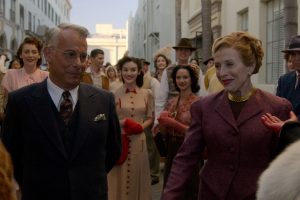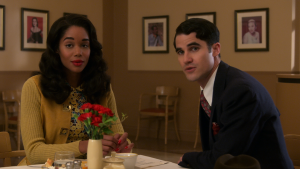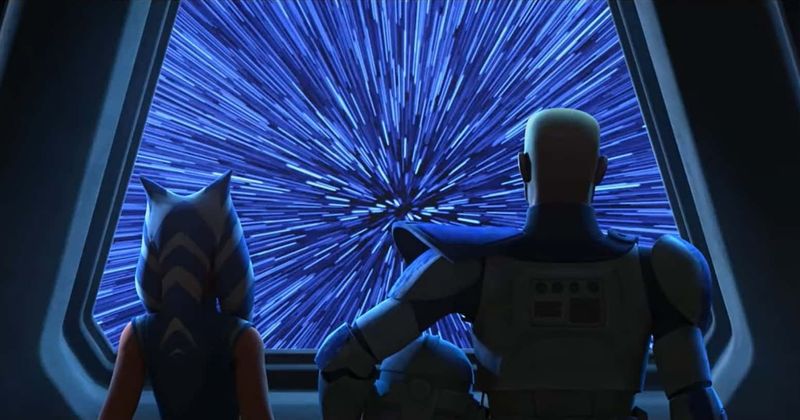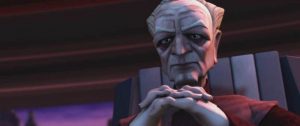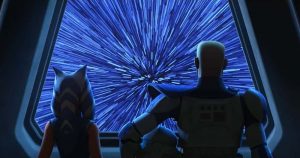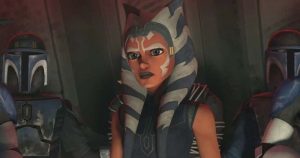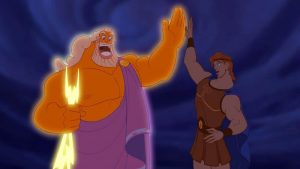SPOILERS FOR THE CLONE WARS FINALE AHEAD
You knew this day was coming. At some point, we would come to the end of all things, and I would inevitably make a Lord Of The Rings reference because, despite it having nothing to do with the situation at hand it’s still my go-to resource for quotes, and we would all start crying because, yes, The Clone Wars is actually over. And no, not over like it was over the last two times, but over as in it was resurrected from the dead by Disney, a final season was commissioned, and now we’ve breezed through that too. I have very mixed emotions about how I feel right now, so get ready for just a little ranting and rambling.

If you’re here, I assume you saw the warning at the top of the post, but one can’t be too careful – we’re about to get into SPOILERS! territory, and, what with this being a finale, there’s sort of a lot of spoilers.
First of all, it’s sad. You may think that’s obvious, given that this is the final episode of a beloved series, but The Clone Wars finale is sad on a whole new level – to a point where it doesn’t even feel sad, it just feels depressing. Other Star Wars stories have seen fit to close out their final chapters with at least a small glimmer of hope (think baby Luke arriving on Tattooine while the galaxy crumbles into chaos at the end of Revenge Of The Sith, or Leia’s shocking but inspiring appearance at the end of Rogue One), but not so The Clone Wars, whose finale abandons all hope and veers into territory so foreign to the series, it makes this episode feel almost like a standalone – an eerie, grimdark, post-apocalyptic dystopian short story.
The melancholy, and occasionally ominous, score accompanying this episode only works to make it even darker, as does the bleak gray color palette. Even the setting is designed to depress: remember the good old days when we could follow our sprawling cast of heroes all around the galaxy, to new and exciting planets untouched by war? Yeah, well, most of this finale takes place on the Republic (technically now Imperial) star-cruiser still hurtling through hyperspace towards Coruscant, and Ahsoka Tano (voiced by Ashley Eckstein) spends most of the time trapped in the cruiser’s suffocating maze of passages, being hunted by her own clones and finding every escape route closed off to her.
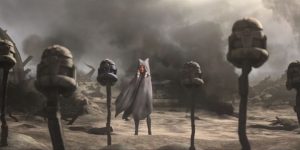
With all of the main characters busy running for their lives, it’s unsurprising that nobody has time to suddenly recognize they’re in a finale and start monologuing dramatically to each other. But this episode has shockingly little dialogue at all, and there’s not really that many last words to be said. Ahsoka’s final scene with her old friend Captain Rex (voiced, like all clones, by Dee Bradley Baker) is, in fact, completely silent, as Ahsoka mourns her fallen troopers (what makes it doubly sad is that they were literally a gift to her from Anakin) by creating a vaguely creepy public art display out of their helmets, and Rex huddles by a cheerless fire, trying to stay warm. As for Darth Maul (Sam Witwer), he steals a ship and disappears into space, off on his own quest to cause chaos and exact vengeance on those who wronged him – which at this point is pretty much everyone. At least he tears apart the star-cruiser’s hyperspace engines before he goes, which inadvertently allows Ahsoka to make her escape (and keeps her from falling into Emperor Palpatine’s hands).
The Clone Wars used to be a pretty cheerful, even funny series: but that’s not the case in the finale. There’s no humor at all, and we’re even forced to watch the happy, helpful droids introduced in last week’s episode as they get blown to bits, screaming in their shrill voices, by a merciless clone firing squad. And soon afterwards, every clone on the star cruiser, including ARC Trooper Jesse, dies when their ship hurtles out of hyperspace and smashes into the surface of a remote planet.

The closest thing to a hopeful ending is the haunting final scene, which shows Darth Vader arriving on this planet and finding the strange grave-site built by Ahsoka, alongside one of her lightsabers. The following shot of Vader activating and brandishing the blue lightsaber is both a sad reminder of what he was before his fall, and a subtle nod towards the redemption he would still achieve: redemption that would make him worthy of once again carrying such a saber. But for the moment, Vader is still Vader – and he turns away from the desolate scene, leaving us to follow his diminishing silhouette reflected in the visor of a dead clone-trooper’s empty helmet. Is that what passes for hope these days?
I may sound like I’m complaining about the sadness, but…well, I am a little, actually, but I did enjoy every individual component that went into today’s episode. Everything from the animation to the action scenes was beautiful, even if it was sad – but it does make one wonder: does Star Wars have a problem with happy endings?
Now obviously, The Clone Wars was never a story that was going to end with all the main characters riding off into a double sunset: but for a series that started out as a cartoon meant for kids, this is certainly a dramatic and unexpected heel-turn. Let me try to explain: it’s fine, it’s perfectly natural in fact, for a series to mature as its audience does and get darker as times goes along – with The Clone Wars, it’s been more than a decade since the series’ first episode aired, so quite a lot of growing has been happening in the interim, and people who watched the show as kids are now adults. What I do take issue with, at least a little, is this cheerless, hopeless ending with which we’ve been left.
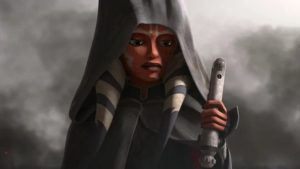
Star Wars as a whole started out much like The Clone Wars did, as pure, shameless escapism; that’s exactly why it became the pop culture phenomenon that it did. But in recent years, the franchise has become….much less fun. The prequels, by virtue of being the prequels, were expected to end in tragedy, misery and inescapable despair, of course – but then you’ve got the sequel trilogy, which avoided a traditional happy ending by basically reminding us that nothing, not even victory, is ever final in this universe: no matter how many times you try to balance the Force (which is what we all thought Anakin had done, back in Return Of The Jedi), it will never work. Rogue One ended with all the main cast dead, their bodies battered into specks of cosmic ash. Now The Clone Wars ends with much of the cast dead and the survivors scattered across the galaxy, and I’m left wondering: what did we accomplish, on that journey?
Well, it’s in the finale’s title: Victory And Death. But what that title conveniently leaves out is that the victory in question isn’t really one at all, because it could have happened at any time had not Emperor Palpatine personally constructed, initiated and drawn out the Clone Wars for years by cunningly manipulating both sides, and even his eventual defeat decades later will still only be a temporary one; and the death in the title isn’t just the demise of an individual, but the collapse of a society, the utter annihilation of a way of life, of an idea, of an idealistic concept upon which the Star Wars galaxy had been built. Is that all that Ahsoka Tano, Anakin Skywalker, Obi-Wan Kenobi and their friends actually achieved, after all that time?
It’s at moments like these that I begin to question whether Star Wars‘ recent trend of sad, cynical endings is actually a good one, or if the franchise is even trying anymore to be comforting. It doesn’t really feel brave anymore: in fact, much like how Pixar is increasingly being criticized for attempting to exploit audiences’ emotions, I sense that Star Wars is heading down a similar path, towards a place where all their stories are designed to leave viewers emotionally devastated. I hope that’s not the case, but after watching this episode, I can’t help but feel that way.
But yeah, happy May The 4th, everybody! Honestly, I don’t want to make it sound like I was left disappointed by the finale – I thought it was hauntingly beautiful, and, if despair was the emotion the showrunners were hoping to cultivate from their audiences, they succeeded. But at a time like this, when the real world is already so dark and the future so uncertain, I can’t say I wasn’t a little discouraged by this conclusion, even though, in the end, it won’t affect my overall rating of the episode.
Episode Rating: 8.5/10
